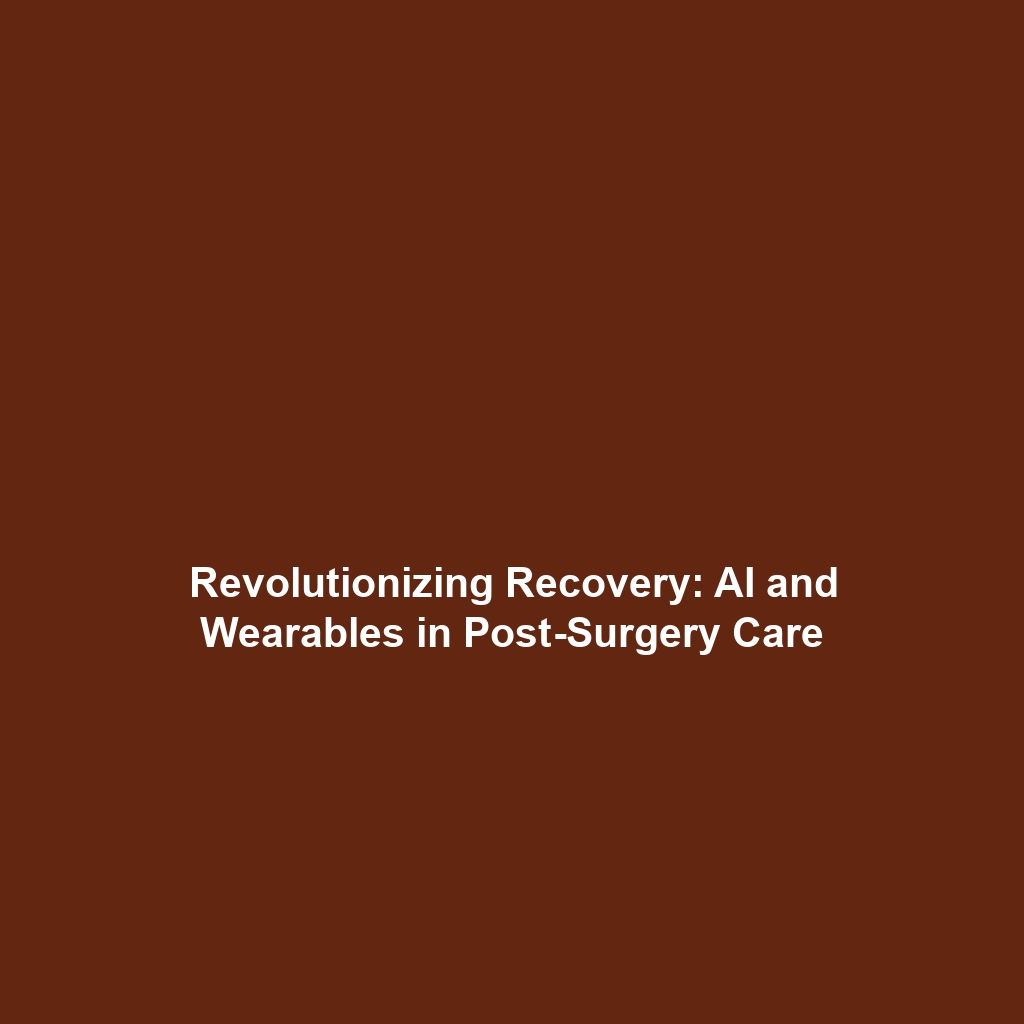How AI Helps Monitor Patient Recovery Post-Surgery Through Wearable Devices
The integration of Artificial Intelligence (AI) in healthcare has paved the way for innovative solutions to monitor patient recovery, particularly post-surgery. Wearable devices embedded with AI technology provide continuous monitoring of vital signs and other health metrics, significantly improving patient outcomes and ensuring timely medical interventions. This article delves into how AI enhances recovery monitoring, positioning itself as a critical component of AI in Healthcare.
Key Concepts
Understanding the principles behind the use of AI and wearable devices in post-surgical recovery involves several key concepts:
- Remote Monitoring: Wearable devices enable healthcare providers to track patients’ recovery from afar, reducing the need for in-person visits.
- Real-Time Data Analytics: AI algorithms analyze data collected from wearables to provide instant feedback and alerts to healthcare providers.
- Personalized Care: AI adapts recovery programs based on individual patient data, enhancing personalized treatment protocols.
- Predictive Analytics: Machine learning models predict potential complications by analyzing recovery patterns, enabling preventative measures.
Applications and Real-World Uses
The applications of AI in monitoring patient recovery through wearable devices are not only innovative but transformative within the field of healthcare. Some significant real-world uses include:
- Heart Surgery Recovery: Wearable ECG monitors provide continuous cardiac monitoring, alerting physicians to any irregularities during recovery.
- Knee Surgery Rehabilitation: Smart knee braces collect data on mobility and pain levels, helping adjust rehabilitation protocols in real-time.
- Postpartum Monitoring: Wearables designed for new mothers track vital signs, ensuring early detection of potential complications such as infections.
Current Challenges
While the use of AI in wearable technology for patient monitoring shows great promise, several challenges hinder its widespread adoption:
- Data Privacy Concerns: Protecting sensitive patient data collected by wearables remains a significant issue.
- Interoperability Issues: Many wearable devices lack compatibility with existing healthcare systems, complicating data integration.
- Accuracy of Sensors: The reliability of wearable technology can be affected by the environmental factors and the quality of sensors used.
- Patient Engagement: Ensuring that patients consistently use and engage with wearable devices is critical for accurate data collection.
Future Research and Innovations
The future of AI in monitoring patient recovery through wearable devices is promising, with several exciting innovations on the horizon:
- Advanced Sensor Technology: Development of more accurate and sensitive sensors is expected to enhance the reliability of data collected.
- AI-Driven Decision Support Systems: Future systems may provide healthcare professionals with more comprehensive insights, leading to proactive patient management.
- Integration with Telehealth: Combining wearable technology with telehealth platforms could further streamline patient recovery processes.
Conclusion
AI’s role in monitoring patient recovery post-surgery through wearable devices represents a significant advancement in healthcare technology. This innovative approach not only enhances recovery outcomes but also transforms how healthcare providers interact with and manage their patients. For further exploration on AI in healthcare, visit our other articles on AI Applications in Healthcare or Future Innovations in Healthcare Technology.
